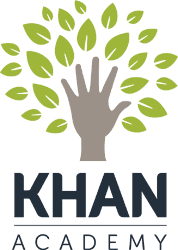Aside: Of course, my case is not the norm. If you search on 10 programming languages that will not die (Lisp, Pascal, PL/1, ...), I have worked in 7 of those (plus many dozens of other languages and environments in situations that could be called production - meaning, post release with real users doing actual work that relied upon the results provided by the computer system - err, app - the modern wannabe).
---
 Today, I was searching on a technical topic and ran across Khan Academy (KA). I had seen them before as I was watching mathematics lectures at Stanford, Harvard, and MIT. That is, today, all subjects of note are accessible.
Today, I was searching on a technical topic and ran across Khan Academy (KA). I had seen them before as I was watching mathematics lectures at Stanford, Harvard, and MIT. That is, today, all subjects of note are accessible.Aside: When I earlier ran across a KA video, it was interesting. But, at the time, I wasn't so much trying to learn something; no, I was watching the classroom situation (2012, Osgood's lectures - note the Remarks during the period) across different milieus (to be discussed) and how it influences delivery/discussion, etc. (2012, Wildberger).
Aside: Before going further, let me tout Wikipedia which is the first place for me as I search. Actually, it's Google, but, for the most part, a Wikipedia article pops up early in the stack. Wikipedia is getting some press. For instance, the Economist showed, recently, a tapestry that had been made from the Wikipedia page on the Magna Carta.
But, after looking at KA today, I am going to go there often. Why? It is a great place to jump to a "101" (not meaning the highway on the West Coast - love it) view. Earlier, I probably bounced back from its K-12 framework. But, there are plenty of new topics that are beyond high school.
Too, I looked at the "Computing" pages. Very nice. Businessweek just did a special issue on code. It was written/edited by one person, Paul Ford. Very unusual tactic. But, it worked. I actually bought the paper copy after seeing the issue on-line.
---
Okay. What does KA bring that is more than the others? It covers a slew of disciplines. And, we all know that it is not shameful for one to look at 101 material for any discipline that is outside of one's usual work. In fact, going to that view can lead to suggestions about additional material (as we see on Wikipedia).
At the top line, click on Subject, and you will see a fairly good representation of things that ought to be in one's mixture of knowledge. So, the material may seem elementary to the expert, but any, but a node-it-all, ought to find something of interest.
There is another perspective. All of these topics have been studied by those who teach them; the teacher-to-be ran the gamut from 101 to the end of the learning process as defined by the particular discipline. So, you might look at the material to get some notion of what is involved.
If you think of yourself as learning about the basics of a subject, then you will have the right mindset for enjoying KA (that is, if you're older and set in your little knowledge sphere). As well, you will see the general view of the topic; albeit, those who might have evolved and adopted a worldview over a period of time might benefit from going back and seeing the fundamentals, from time to time.
Actually, science, in its proper mode, would require that. Axioms and other assumptions seem to get hidden, almost as a general rule.
---
Any enthusiasm that one can perceive in this post's message came about from two areas: computing and math. Computing has some examples, with code, that ought to avail one of successful understanding even if one must provide one's own workbench. In the math area, the collection of post-high-school topics is nice (say, multivariate calculus and pick gradient - same subject, at Wikipedia - someone put a link to the KA site - same subject at Wolfram's collection by Eric Weisstein), albeit sparsely, somewhat, covered right now.
One can easily look toward a continued expansion on each subject. And, extending out toward the first couple years of college would be a boon. Of course, it has taken Wikipedia years to collect their material (all entered by volunteer authors). So, KA will be interesting to watch and to review from time to time.
Remarks: Modified: 06/25/2015
06/25/2015 --
No comments:
Post a Comment